Please note, links to all the Freedom Essays are included at the end of this essay. Open any essay to read, print, download, share or listen to (as an audio).
Freedom Essay 4
The ‘instinct vs intellect’ is the obvious
and real explanation of our condition,
as all these great thinkers evidence
(this is a shortened version of Freedom Essay 53)
By Jeremy Griffith, 2018
In this presentation Jeremy Griffith points out that he is not the first person to identify the instinct vs intellect elements involved in producing the human condition. As he reveals, there have been many thinkers throughout history—indeed many of the acknowledged great thinkers in history—who have recognised that the answer to our angry, egocentric and alienated human condition lay in understanding that a clash must have occurred between our already established instincts and more recently emerged conscious mind.
Watch the presentation here:
Make and see comments here
This presentation also appears as Video 4 in the Main Videos towards the top of our homepage at www.humancondition.com.
The Transcript of this video
Hello again.
Firstly, what I am now going to present is basically a short summary of a longer description I give in Freedom Essay 53 of why the instincts vs intellect explanation of the human condition (which I just described in the previous video/essay) is the obvious and real explanation for that condition. (Please note that quote sources not provided in this presentation can be found in F. Essay 53.)
PART 1 Thinkers from ancient times who recognised the
conflict between our moral instincts and conscious mind,
and the evidence from bonobos of how we acquired our
moral instincts
I am not the first person to identify the instinct vs intellect elements involved in producing the human condition. As I describe in chapters 2:6 and 2:7 of my book FREEDOM: The End Of The Human Condition, there have been many thinkers throughout history—indeed many of the acknowledged great thinkers in history—who have recognised that the answer to our angry, egocentric and alienated human condition lay in understanding that a clash must have occurred between our already established instincts and more recently emerged conscious mind.
The ‘double whammy’ effect from having moral instincts
Before presenting the work of some of these thinkers, I want to make the point that all that is needed to produce a psychologically upset state in a species is for it to become fully conscious, because that self-adjusting capability will naturally have to defy the non-insightful, intolerant, dictatorial instincts. It doesn’t matter what the particular orientation of the species’ instincts is, the fact that instincts are not insightful means that an upsetting clash with the insight-based, self-adjusting conscious mind has to occur. So irrespective of a species’ instinctive orientation, if it develops a fully conscious mind an upsetting battle has to occur between those instincts and the conscious mind.
Importantly however, this doesn’t mean that the particular orientation of a species’ instincts can’t have an impact on the clash with a conscious mind. It can affect it very greatly, as it did when we humans became fully conscious. As pointed out in the second video/essay of this series, we humans have cooperative, selfless and loving moral instincts, the voice or expression of which we call our conscience. Charles Darwin recognised our distinctive moral nature when he wrote that ‘The moral sense perhaps affords the best and highest distinction between man and the lower animals’. What is so significant about humans having cooperative, selfless and loving moral instincts is that when we became fully conscious, and began experimenting in understanding, and were criticised by our instincts and unavoidably responded in an angry, egocentric and alienated way, that divisive response caused even greater criticism from our instincts because they expected us to behave cooperatively, selflessly and lovingly. In our necessary search for understanding we were firstly unjustly condemned for defying our instincts, and then again for reacting to that condemnation in a way that was counter and offensive to our instincts. We had to endure a ‘double whammy’ of criticism when we became conscious! (This particular ‘double whammy’ effect from having moral instincts is described in F. Essay 24 and in depth in chapter 3:5 of FREEDOM.)
And as I’ll talk much more about shortly, our conscious mind’s terrible ‘double whammy’ of pain for having offended our species’ particular moral instincts is the core reason for the underlying frustration and anger in our behaviour, and also for the immense guilt and insecurity that has necessitated we adopt the patently dishonest ‘savage instincts’ excuse that I described in Video/F. Essay 2.
Thinkers from ancient times who have recognised the moral
instincts vs conscious intellect source of the human condition
Having explained that the conflict between the instincts and intellect in our species’ case was greatly compounded by our cooperative, selfless and loving moral instincts, I want to now present the recognition of this conflict by some of the greatest thinkers of ancient times (later I’ll mention similar thinkers from contemporary times).
Moses as depicted by Michelangelo, with the horns symbolising that he was
able to talk with God, confront the truth of the integrative meaning of life.
(Integrative Meaning and its personification as ‘God’ is explained in F. Essay 23.)
I already mentioned in my previous presentation the great Hebrew prophet Moses’s 3,500-year-old story of Adam and Eve that describes Adam and Eve as living in the Garden of Eden-state of original innocence (the dictionary description for the word ‘Edenic’ is ‘the first home of Adam and Eve…a state of innocence, bliss, or ultimate happiness’ (The Free Dictionary)), and how they then took the fruit from the tree of knowledge, obviously meaning they became conscious, at which point they became sufferers of divisive behaviour or ‘sin’. So that’s an acknowledgement that we once lived cooperatively and lovingly and then became conscious and seemingly lost the plot by becoming ‘evil’, guilty, competitive and aggressive sinners deserving of ‘banishment’ from the Garden of Eden.
Of course, what is missing from Moses’s account is the critical redeeming explanation for WHY searching for knowledge made us angry, egocentric and alienated which, as I emphasised in my previous presentation, science has since made possible with its discovery of the difference in the way genes and nerves operate—namely that while genes can give species orientations, nerves need to understand cause and effect. All the elements involved in producing the human condition of moral instincts at odds with a conscious mind are present in Moses’s story of Adam and Eve.
Similar acknowledgements of our species’ past cooperative and loving existence which became corrupted when we became conscious can be found in other religions. For example, Zen Buddhism speaks of the loss of an uncontaminated, pure state as a result of the intervening conscious mind, referring to ‘the affective contamination (klesha)’ or ‘the interference of the conscious mind predominated by intellection (vijñāna)’. And Taoist scripture features a description of our distant forebears as being ‘the Men of Perfect Virtue’. Indeed, as the American author Richard Heinberg points out in his book Memories & Visions of Paradise, every human culture has a myth involving both the emergence of consciousness and a ‘fall’ from an original ‘Golden Age’ of togetherness and peace. As Heinberg summarised in the second edition (1990) of his book, ‘Every religion begins with the recognition that human consciousness has been separated from the divine Source, that a former sense of oneness…has been lost…everywhere in religion and myth there is an acknowledgment that we have departed from an original…innocence and can return to it only through the resolution of some profound inner discord…the cause of the Fall is described variously as disobedience, as the eating of a forbidden fruit [from the tree of knowledge], and as spiritual amnesia [forgetting, blocking out, alienation/psychosis]’. Again, that ‘resolution of some profound inner discord’ between our ‘separated’ ‘original’ state of ‘innocence’ and ‘conscious’ mind depended on science providing insight into the way genes and nerves work.
Later in F. Essay 53, which, as I’ve mentioned, is a longer, more complete presentation of what I’m explaining in this talk, I include Heinberg’s descriptions of many of these cultural myths and religious teachings that recognise the ‘naive, innocent, cooperative and loving instincts vs a newly developed self-adjusting conscious intellect’ elements of the human condition—from the Sumerians to the Babylonians to the Persians, to the Hebrews, Egyptians, Africans, Hindus, Americans, Chinese, Romans and Greeks. As an example, in the case of the ancient Greeks, Heinberg quotes the very great Greek poet Hesiod who in approximately 800 BC wrote this about our species’ pre-conscious time (the underlining is my emphasis): ‘When gods alike and mortals rose to birth / A golden race the immortals formed on earth…Like gods they lived, with calm untroubled mind / Free from the toils and anguish of our kind / Nor e’er decrepit age misshaped their frame…Strangers to ill, their lives in feasts flowed by…Dying they sank in sleep, nor seemed to die / Theirs was each good; the life-sustaining soil / Yielded its copious fruits, unbribed by toil / They with abundant goods ’midst quiet lands / All willing shared the gathering of their hands.’ So yes, they didn’t have a troubled conscious mind, and they lived a sharing, gentle life.
Hesiod also recounted how this ‘Golden Age’ came to an end, telling how Prometheus stole fire—which, as I’ll explain shortly, represents consciousness—from his fellow Gods and gave it to humans for their use, an act which enraged the Gods, and Zeus in particular, who retaliated by ‘send[ing] evil for thy stealthy [theft of] fire’. Zeus punished Prometheus by having him strapped to the top of a mountain where, every day in perpetuity, ‘down he sent from high / his eagle hovering on expanded wings / she gorged his liver’. And humanity he punished by creating the infamous woman Pandora, who opened a great ‘box’ containing a multitude of ‘ills’ so that ‘woes innumerous roam’d the breathing world / with ills the land is rife, with ills the sea / Diseases haunt our frail humanity.’ Zeus’s punishment for Prometheus’s theft of fire brought an end to the ‘Golden Age’; where previously ‘From evil free and labour’s galling load / …[there emerged a situation where] Now swift the days of manhood haste away / And misery’s pressure turns the temples gray.’ Hesiod then chronicles his five ages of man—from the just referred to ‘Golden Age’ of innocence came the ‘Silver Age’ where there was still some innocence, then the ‘Bronze Age’ where men were tough and warlike, then the civilised ‘Heroic Age’, and then finally his own age, the completely corrupt ‘Iron Age’, where ‘misery’ has compounded to the point where Hesiod cries, ‘Oh would that Nature had denied me birth / Midst this fifth race; this iron age of earth / That long before within the grave I lay / Or long hereafter could behold the day! / Corrupt the race, with toils and grief opprest / Nor day nor night can yield a pause of rest / …Speeds the swift ruin which but slow began.’ In light of what has been revealed, we can now understand that in this story fire is the metaphor for the conscious intellect (as it is in many mythologies; indeed, ‘Prometheus’ literally means ‘forethought’), and that the consequences of humans gaining a conscious mind were ‘woes innumerous’ and ‘misery’ and ‘evil’, which explains why Prometheus was punished by the Gods—in their eyes his gift to humans of consciousness was responsible for the ‘corrupt[ion]’ of the human race, for our falling out with the Godly ideals.
So, the elements of an original moral instinctive orientation which then came into conflict with a conscious mind were in these myths from ancient Greece, but of course, as in Moses’s time, the science didn’t exist that would make it possible to explain the redeeming, good reason for WHY the conflict occurred.
Plato, like Hesiod, is another very great thinker from ancient Greece. Indeed, Alfred North (A.N.) Whitehead, himself one of the most highly regarded philosophers of the twentieth century, described the history of philosophy as being merely ‘a series of footnotes to Plato’. Since philosophy is the study of ‘the truths underlying all reality’ (Macquarie Dictionary, 3rd edn, 1998), and Plato was the champion of this study of the truths underlying all reality, we can expect that Plato also recognised the moral instincts vs conscious intellect elements of the human condition, and he certainly did. In 360 BC he gave this exceptionally honest description of our species’ pre-conscious time in innocence: ‘there was a time when…we beheld the beatific vision and were initiated into a mystery which may be truly called most blessed, celebrated by us in our state of innocence, before we had any experience of evils to come, when we were admitted to the sight of apparitions innocent and simple and calm and happy, which we beheld shining in pure light, pure ourselves and not yet enshrined in that living tomb which we carry about, now that we are imprisoned in the body, like an oyster in his shell.’ Plato also gave this other honest description of the innocent ‘Golden Age’ in our species’ past, writing of a time when we lived a ‘blessed and spontaneous life…[where] neither was there any violence, or devouring of one another, or war or quarrel among them…In those days God himself was their shepherd, and ruled over them [our original instinctive self was orientated to living in an ideal cooperative, loving way]…Under him there were no forms of government or separate possession of women and children; for all men rose again from the earth, having no memory of the past [we lived in a pre-conscious state]. And…the earth gave them fruits in abundance, which grew on trees and shrubs unbidden, and were not planted by the hand of man. And they dwelt naked, and mostly in the open air, for the temperature of their seasons was mild; and they had no beds, but lay on soft couches of grass, which grew plentifully out of the earth.’
When describing the emergence of consciousness and its corruption of our loving, moral instincts, Plato used a two-horsed chariot analogy in which the conscious mind ‘plunges and runs away, giving all manner of trouble to his companion [our cooperative and loving moral instincts]…[by perpetrating] terrible and unlawful deeds [it defies our moral instincts]’. And elsewhere Plato also described how after the emergence of consciousness, humans ‘had to order their course of life for themselves, and were their own masters’, after which occurred ‘the separation, when the world was let go [when the corrupt state of the human condition emerged]’; a situation where he said ‘at first all proceeded well enough [our intellect mostly deferred to our instincts]; but, as time went on, there was more and more forgetting [more and more dishonest denial with its alienating separation from our instinctive moral self because it was criticising us more and more]…and at last small was the good, and great was the admixture of evil, and there was a danger of universal ruin to the world’. And that’s the situation we have arrived at today where the upset in humans is now so great we ARE facing the ‘universal ruin’ of the world!
Obviously living at a time when science still had to be developed Plato, like Moses and Hesiod, was also unable to provide the redeeming, instincts-can-orientate-but-only-nerves-can-understand, good reason WHY we departed from ‘innocence’ and seemingly, as he described it, became ‘evil’, bad people.
Bonobos evidence our nurtured, cooperative and loving heritage
Since it’s likely been a very pressing question in your, the listener/reader’s, mind, I’ll now briefly explain how our distant ape ancestors came to live in a cooperative and loving instinctive state. Indeed, this question of how we humans acquired our moral instinctive self or soul has been one of the great outstanding biological questions. And the reason it has been such a huge question for us biologists is because we know that genes normally cannot select for unconditionally selfless, fully cooperative traits simply because such traits tend to be self-eliminating and so normally can’t become established in a species—‘By all means, you can be selfless towards me and sacrifice your genes for me, but I’m not about to be selfless towards you and sacrifice my genes for you.’ The process of natural selection dictates that selfish opportunism will supposedly always exploit selflessness. So how could such a selfish process possibly have created such loving selflessness in us? As is explained in F. Essay 21, the way it was achieved in our forebears was through nurturing.
To explain what is so significant about a mother’s nurturing of her offspring, I first need to point out that a mother’s maternal instinct to care for her offspring is selfish because she is ensuring the reproduction of her genes by looking after her offspring who carry her genes. So maternalism is a selfish trait, which, as I’ve just said, genetic traits normally have to be for them to reproduce and carry on into the next generation. HOWEVER, and this is all-important, from the infant’s perspective maternalism does have the appearance of being selfless. From the infant’s perspective, it is being treated unconditionally selflessly—the mother is giving her offspring food, warmth, shelter, support and protection for apparently nothing in return. So it follows that if the infant can remain in infancy for an extended period and be treated with a lot of seemingly altruistic love, it will be indoctrinated with that selfless love and grow up to behave accordingly. As is explained in much more detail in F. Essay 21, selfish maternalism can train an infant in altruistic selflessness.
And if we think about primates, being semi-upright from living in trees, and thus having their arms free to hold a dependent infant, it’s clear that they are especially facilitated to support and prolong the mother-infant relationship, and so develop this nurtured, loving, cooperative behaviour. And in fact, the bonobo variety of chimpanzees, who live south of the Congo River in Africa, are extraordinarily matriarchal, or female role focused, and extraordinarily nurturing, as the following photos illustrate, and as a result bonobos are the most cooperative and loving of all primates, which the following quotes evidence. And bonobos are also our closest living relatives, sharing 98.7% of our DNA. So we can see that bonobos provide the perfect evidence for how our distant ape ancestors became cooperative and loving.
Quotes illustrating the extraordinarily loving nature of bonobos.
You can read much more about the amazing nurtured
cooperativeness in bonobo life in F. Essay 21.
The following picture of a group of bonobos resting in a grassy glade perfectly equates with the description that Plato gave earlier about what life was like for humans back in the ‘Golden Age’ of nurtured togetherness: ‘And they dwelt naked, and mostly in the open air, for the temperature of their seasons was mild; and they had no beds, but lay on soft couches of grass, which grew plentifully out of the earth.’ Clearly we have a perfect instinctive memory (if we don’t choose to deny it) of what life was like before ‘the fall’ because Plato didn’t know of the existence of bonobos and yet knew exactly what our bonobo-like life before ‘the fall’ was like.
Your next question may well be, ‘But why haven’t I heard about this reasonably obvious nurturing explanation for humans’ moral nature before now?’ Well, just like the obvious truth that our species once lived cooperatively and lovingly, this truth that we acquired our moral instincts through nurturing has been an unbearable truth while we couldn’t explain why we humans became so competitive and aggressive and as a result lost the ability to adequately nurture our offspring with unconditional selflessness or love. The truth of our species’ Edenic cooperative, innocent and loving past, and the truth that nurturing is what made us human, have both been impossible truths to accept while we couldn’t truthfully explain the human condition, explain why our species became corrupted and lost the ability to fully nurture its offspring. As it has been observed, ‘parents would rather admit to being an axe murderer than a bad mother or father’!
Again, F. Essay 21 describes how nurturing gave us our moral instincts—and also the scientist who dared to admit it.
PART 2 The source of the volcanic anger in humans, and why we had to employ the false ‘savage instincts’ excuse
I now want to interrupt this presentation of thinkers who have recognised the instinct vs intellect elements of the human condition to firstly talk more about the ‘double whammy’ effect from having offended our moral instincts, and secondly about why we had no choice but to employ the false ‘savage instincts’ excuse.
Where the volcanic anger in humans has been coming from
What I want to add to what I said about the ‘double whammy’ we conscious humans have had to endure (of being condemned for defying our instincts and then again for responding to that condemnation in an angry, egocentric and alienated way that further offended our particular moral instincts) are the consequences of never having accepted that we deserved all this condemnation. In fact, what has kept us going throughout the 2 million years (which is the probable time we humans have been fully conscious) that we have had to live with this terrible condemnation is that we have always intuitively believed that there had to be a reason for our corrupted condition and that one day we would find that redeeming and psychologically relieving explanation—which, as I’m arguing, we have now finally found.
If we think about the scale of the injustice of this situation where for some 2 million years we have been condemned as evil, innocence-destroyed, Garden-of-Eden-obliterated, corrupt monsters by the whole world when all the time we didn’t believe we were, but couldn’t explain why, we can see where all the volcanic frustration and demonic anger inside us humans has been coming from.
Imagine living for just one day with the injustice of being condemned as evil, bad and worthless when you intuitively knew, but were unable to explain, that you were actually the complete opposite, namely truly wonderful, good and meaningful—in fact, as it turns out, the heroes of the whole story of life on Earth! How tormented—how immensely upset—would you be by the end of that one day? You would be hurt to the core and furious! So extrapolate that experience over 2 million years and you can begin to appreciate just how much volcanic frustration and anger must now exist within us humans! While we have learnt to significantly restrain and conceal—‘civilise’—the phenomenal amount of upset in us, under the surface our species must be boiling with rage, and sometimes, when our restraint can no longer find a way to contain it, that anger must express itself—hence our capacity for shocking acts of cruelty, sadism, hate, murder and war. And no wonder we have led such an evasive, denial-practising, lying, avoid-the-truth-of-our-corrupted-condition-at-all-costs, escapist, superficial and artificial, greedy, smother-ourselves-with-material-glory-while-we-lacked-the-spiritual-glory-of-compassionate-understanding-of-ourselves, power, fame, fortune and glory-seeking existence.
We truly are psychologically distressed creatures—but now at last we can explain ourselves and end the psychosis. The word ‘psychiatry’ literally means ‘soul-healing’ (derived as it is from psyche meaning ‘soul’, and iatreia which means ‘healing’—see paragraphs 63 & 72 of FREEDOM), but never before have we been able to ‘heal our soul’, explain to our original instinctive self or soul that our fully conscious, thinking self is good and not bad and, by so doing, reconcile and heal our split selves. The psychoanalyst Carl Jung was forever saying that ‘wholeness for humans depends on the ability to own our own shadow’—well now at last we can love ourselves. Everyone can come in from the cold now. Deep, bone-draining exonerating relief finally comes to the human race!
Why we had to employ the false ‘savage instincts’ excuse
Not only did the injustice of our situation cause volcanic frustration and anger in us, the astronomical shame, guilt and insecurity from seeming to be vile, evil, innocence-destroying creatures also necessitated that we find some excuse for our corrupted condition while we searched for the real reason for it—and this is where the patently false ‘savage instincts’ excuse came to our rescue.
To fully appreciate the agony of our human condition we do need to keep immersing ourselves in the full horror of our predicament. If our species did once live in a wonderfully cooperative, selfless and loving peaceful state, as the great thinkers I’ve just mentioned recognised we did, then how extremely ashamed of our corrupted condition must we be? The question that has been screaming out to be answered is, ‘Why on Earth would we have been so seemingly stupid to have departed from such a wonderful existence? How were we to explain our species’ so-called ‘fall from grace’; why did we depart from our original Edenic cooperative and loving moral instinctive way of living and become brutally aggressive warmongers, egomaniacal competitors and psychotic and neurotic mad people? Why did we destroy paradise, turn utopia into dystopia!?’ That has been our terrible predicament: how on Earth could we explain and justify that seeming act of madness. Even though we intuitively didn’t believe it was true, the seemingly irrefutable implication from our behaviour has been that we are evil monsters?!
Clearly, trying to live with the implication that we are evil, worthless monsters has been unbearable, which means it was absolutely imperative that we find some relieving excuse for our corrupted condition while we waited for the actual explanation for it to be found—and, as I said, that is where the ‘savage instincts’ excuse came to our rescue.
Obviously untrue as it is, we could apply a bit of mental self-deception to persuade ourselves that, ‘Look, animals are competing and fighting all the time so that’s our animal heritage as well’! Basically, just overlook the fact that we have loving moral instincts and determinedly embrace the ‘savage instincts’ excuse! Unsurprisingly really, given the agony of our predicament, when we humans become psychologically cornered, any excuse will do, we just need to come up with one—and that’s what we did with the ‘savage instincts’ excuse.
AdobeStock; jeaneeem / Flickr
Again, as I said in the second video/essay of this series, this excuse that we have savage animal instincts that are driven by a need to reproduce our genes like other animals is the excuse that virtually everyone has been using for our competitive, selfish and aggressive human-condition-afflicted behaviour. Our conversations are saturated with the ‘savage instincts’-based reason for our behaviour, with comments like: ‘We are programmed by our genes to try to dominate others and be a winner in the battle of life’; and ‘Our preoccupation with sexual conquest is due to our primal instinct to sow our seeds’; and ‘Men behave abominably because their bodies are flooded with must-reproduce-their-genes-promoting testosterone’; and ‘We want a big house because we are innately territorial’; and ‘Fighting and war is just our animal nature expressing itself’; and ‘Religions are merely manifestations of our survival-driven group mentality’. And then there’s the most common comment of all, that ‘It’s just human nature to be selfish’. We deluded ourselves that other animals constantly compete and fight with each other in an effort to make sure they reproduce their genes, and that’s what our forebears did, and so that is where our brutal competitive and aggressive behaviour comes from, which we—‘we’ being our conscious self—supposedly have to spend our whole lives trying to control.
But again, as I pointed out, the ‘savage instincts’ theory is simply not true, it’s just a convenient excuse we came up with. Firstly, we humans don’t have savage competitive, selfish and aggressive instincts like other animals, we have cooperative, selfless and loving moral instincts, the voice or expression of which we call our conscience; recall Darwin’s words: ‘The moral sense perhaps affords the best and highest distinction between man and the lower animals.’ And secondly, words used to describe human behaviour such as egocentric, arrogant, inspired, depressed, deluded, pessimistic, optimistic, hateful, cynical, mean, immoral, brilliant, guilt-ridden, evil, psychotic or neurotic, all recognise the involvement of OUR species’ fully conscious thinking mind. They demonstrate that there is a psychological dimension to our behaviour; that we don’t suffer from a genetic-opportunism-driven ‘animal condition’, but the psychologically troubled HUMAN CONDITION.

Some of the many science books accounting for human behaviour
using the false ‘savage instincts’ excuse—see Video/F. Essay 14.
Further, if we do have cooperative, selfless and loving moral instincts (which, as Darwin said, we do), and not competitive, selfish and aggressive ones like other animals, then those cooperative and loving instincts must have come from a time when our forebears—presumably our distant ape ancestors—lived cooperatively, selflessly and lovingly. And in fact, our ape ancestors did live cooperatively, selflessly and lovingly, and, as has now been explained, it was through nurturing, like the bonobos practice, that they managed to achieve that wonderful gentle, sharing, cooperative and peaceful way of living that Moses, Hesiod and Plato, and many other great thinkers of old, recognised they did live like.
But as I have emphasised, the immense problem we have had with this truth that our ancestors were cooperative, selfless and loving is that it has been absolutely unbearably condemning of our present corrupted condition, which means we simply had to find a way to deny it, which again is where the ‘savage instincts’ excuse came to our rescue. We have to bottom out on how diabolical our situation has been. It wasn’t until science revealed the difference between instinctive orientations and conscious understandings that we humans were finally in a position to explain the real reason for our competitive and aggressive behaviour. Until we found out about nerves and genes and how they work, every time we thought truthfully about our ‘corrupted’ or ‘fallen’, innocence-destroyed, Garden-of-Eden-obliterated human condition, the only conclusion we could come to was that we must be evil monsters. Without the ability that science has given us to explain about nerves and genes we were completely stuck with absolutely no ability at all to truthfully explain ourselves.
And since science only found out about the existence of genes and nerves and how they work in the last 160 years or so (the period since Darwin published his theory of natural selection), that is a staggering amount of time we fully conscious humans have had to live without the ability to truthfully explain ourselves—some 2 million years in fact.
So now we can see how important it was to deny our ancestors lived cooperatively and lovingly and instead to delude ourselves they were savage brutes trying to reproduce their genes like other animals—because without that denial and that excuse we simply wouldn’t have been able to get by and live with ourselves throughout all that time! And we can also now see what an absolutely incredible relief it is to have the real reason for our corrupted condition and no longer have to carry on the charade of believing in a false excuse! And there is not only the relief of no longer having to lie like fools, this true understanding that we now have of the human condition allows every human to no longer have to live a defensive and retaliatory egocentric and aggressive existence. We can be transformed to living free of the human condition, which is a fabulous change that Tony Gowing describes in the next video/essay (5), and I will further describe in F. Essay 15. So, there really is no comparison between the life we have had to live up to the present and what we now have on offer!!! [Please visit our Transformation page to learn more about the Transformed Way of Living, and Tony’s wonderful example of the Transformed State.]
PART 3 Contemporary thinkers who have recognised the
basic instinct vs intellect elements involved in producing the human condition
The main point about what has now been explained is that until science revealed the difference in the way genes and nerves work and by so doing made it possible to truthfully explain why we humans became competitive, aggressive and selfish (which, again, I’m suggesting is the explanation I presented in the previous video/essay), we had no choice other than to use the dishonest ‘savage instincts’ excuse for our divisive behaviour. This does raise the question that since these understandings of how genes and nerves work have been known for 160 years or so, why hasn’t the instinct vs intellect explanation I’ve given for the human condition been found before now—and why hasn’t science raced to acknowledge the all-important discovery? The reason it hasn’t been found is that almost all scientists, like virtually every other human, have been deeply committed to avoiding the unbearably confronting issue of the human condition (the terrifying question of why we are so corrupted and soul-destroyed) and habituated to using the ‘savage instincts’ excuse to defend themselves. I had to be thinking independently of prevailing scientific thought to be thinking truthfully enough about the human condition to solve it. And, in terms of having that understanding accepted by the scientific establishment, science has always been slow to move to a new paradigm of thinking, especially when the new paradigm is a more truthful one—a difficulty the playwright George Bernard Shaw recognised when he said that ‘All great truths begin as blasphemies.’ You can learn much more about science’s entrenched denial of the human condition and about its extremely dangerous perpetuation of the savage instincts excuse in Video/F. Essay 14, and in chapter 2 of FREEDOM. Indeed, Video/F. Essay 14 gives a very powerful description of all the dishonesty in science, and where that dishonesty has been taking us—which is straight to extinction!
So that brings us to the main point of this presentation, which is that you will know that the explanation of the human condition that I have put forward is the true explanation because if we think truthfully about the human condition—instead of dishonestly living in denial of it as virtually everyone, including scientists, have been doing—then it becomes apparent that the instinct vs intellect explanation is the completely obvious and fully accountable and thus true explanation for our divisive behaviour. And this obviousness is made abundantly clear by the many great thinkers throughout history who have recognised those instinct vs intellect elements—such as the ones I have already mentioned from ancient history, and the ones I’m about to mention from contemporary times. As you will see, while none of these thinkers have managed to fully explain the human condition—in some cases because in their time science had yet to reveal the nature of the gene and nerve-based systems—all of them recognised the key ingredients involved in that honest and true explanation of our conscious mind being at odds with our instincts.
However, while all these thinkers have recognised the fundamental instinct vs intellect ingredients involved in producing the psychologically upset state of the human condition, you will notice that amongst the contemporary thinkers I’m about to mention there is a variance in how honest each has been about those instincts within us being cooperative, selfless and loving, not competitive, selfish and aggressive. Not all contemporary thinkers have been able to acknowledge the truth of our cooperative and loving past because the more upset angry, egocentric and alienated the human race became, the more unbearably confronting the truth of our past state of innocence became. It follows that in earlier times when the upset angry, egocentric and alienated state of the human condition wasn’t as developed as it now is, there would be more truthful acknowledgement of our species’ cooperative, selfless and loving heritage and of its corruption when we became conscious—which is what the examples from ancient times demonstrate.
Even so, while all the thinkers from the less upset, more innocent and naive ancient times included here were all able to acknowledge our cooperative, selfless and loving heritage, there were already, even in those earlier times, many people who wanted to deny it, and we know this because Plato told us of its occurrence in those earlier times when he wrote that ‘this tradition [of the innocent ‘earth-born’ man], which is now-a-days often unduly discredited, our ancestors [in the form of existing relatively innocent ‘races’ of people, such as those who still exist today like the Bushmen of the Kalahari and the Australian Aborigine], who were nearest in point of time to the end of the last period and came into being at the beginning of this [more upset period], are to us the heralds [of that earlier innocent age]’. Of course, being members of modern humans, Homo sapiens sapiens, the Bushmen and the Aborigines are still going to be full of upset compared to our distant, original fully innocent, bonobo-like ancestors—they are only relatively innocent compared to most ‘races’ today. (see par. 860 of FREEDOM)
So, even though there is in our modern era even more denial of our species’ innocent past than was occurring in Plato’s time when he lamented that our innocent past ‘is now-a-days often unduly discredited’, as you will see in the following collection of contemporary thinkers who have recognised the basic instinct vs intellect elements involved in producing the human condition, there are still those who have truthfully recognised both the basic elements and that our instincts were cooperative and loving.
(Again, the source of all these quotes in this presentation can be found in the longer version of this presentation in F. Essay 53, where many more acknowledgements of our conscious mind’s corruption of an original state of innocence are recorded.)
In identifying the role of instinct and intellect in producing the human condition, the South African naturalist Eugène Marais was on the right track when, between 1916 and 1937, he wrote that ‘The great frontier between the two types of mentality is the line which separates non-primate mammals from apes and monkeys. On one side of that line behaviour is dominated by hereditary memory, and on the other by individual causal memory…The phyletic history [evolutionary development] of the primate soul can clearly be traced in the mental evolution of the human child. The highest primate, man, is born an instinctive animal. All its behaviour for a long period after birth is dominated by the instinctive mentality…it has no memory, no conception of cause and effect, no consciousness…As the new soul, the soul of the individual memory slowly emerges, the instinctive soul becomes just as slowly submerged…For a time it is almost as though there were a struggle between the two.’ Marais also recognised that the ‘instinct…is incapable of deviation from a certain fixed way of behaving…This inherited memory is in every respect a terrible tyrant.’ He further realised that ‘the so-called “subliminal soul” in man—the “subconscious” mentality—is none other than this old “animal” [instinctive] mentality which has been put out of action by the new [conscious] mentality.’
We can recognise much of the Adam Stork analogy that I use to explain the human condition in Video/F. Essay 3 in Marais’s description—of becoming conscious and, as consciousness emerged, a ‘struggle’ with the inflexible, ‘tyran[nical]’ instincts erupting. Marais not only acknowledged the elements of instincts and conscious intellect involved in the human condition, he was considering how the two elements interacted. Had he pursued and developed his insight into the emerging ‘struggle’ between the inflexible, ‘tyran[nical]’ ‘instinctive soul’ or ‘hereditary memory’ and the new ‘conscious’ ‘memory’-based, ‘cause and effect’-understanding, ‘individual causal memory’, he could have realised, as I did, that the good reason why the conscious intellect had to defy the tyrannical instincts was because the conscious mind had to search for understanding of ‘cause and effect’, and further that it was that particular guilt-producing ‘struggle’ that caused the upset competitive, aggressive and selfish, corrupted human nature.
So that’s an amazingly honest and thus penetrating analysis of the origin of our corrupted human condition!
F. Essay 51 is dedicated to explaining the significance of the work of Sir Laurens van der Post, especially his extensive writings about the relatively innocent Bushmen people of the Kalahari Desert of South Africa. What is relevant here is that Sir Laurens, who I regard as the pre-eminent philosopher of the twentieth century, and who, like Marais, was from South Africa, had an honest denial-free ability to acknowledge the involvement of our moral instincts and corrupting intellect in producing the upset state of the human condition. As we can see from this passage from Sir Laurens’s writing in 1984, he bravely acknowledged that ‘before the dawning of individual consciousness’ humans lived in a state of ‘togetherness’—a state that he said we have had such a hunger to return to that it has been ‘like an unappeasable homesickness at the base of the human heart’. He wrote: ‘This shrill, brittle, self-important life of today is by comparison a graveyard where the living are dead and the dead are alive and talking [through our soul] in the still, small, clear voice of a love and trust in life that we have for the moment lost…[there was a time when] All on earth and in the universe were still members and family of the early race seeking comfort and warmth through the long, cold night before the dawning of individual consciousness in a togetherness which still gnaws like an unappeasable homesickness at the base of the human heart.’ In an even more explicit reference, Sir Laurens also recognised the actual ‘war’ that exists between our original innocent instinctive self and our newer conscious intellect writing, ‘I spoke to you earlier on of this dark child of nature, this other primitive man within each one of us with whom we are at war in our spirit.’
We can see that while Sir Laurens was able to clearly recognise the ‘war’ between our original, innocent, instinctive soulful ‘child of nature’ and our newer ‘individual conscious’ intellect or ‘spirit’, he didn’t provide the critically important, reconciling and redeeming, good biological reason WHY the ‘war’ occurred.
I should note here that in recognising the relative innocence of the Bushmen people of the Kalahari, Sir Laurens defiantly rebelled against the practice of denial of the truth that we humans did once live in an upset-free innocent state prior to the emergence of the human condition. (This defiance and the persecution of Sir Laurens that resulted from it is described in F. Essay 51.) For example, he wrote in 1961 that ‘There was indeed a cruelly denied and neglected first child of life, a Bushman in each of us.’ He even described the relatively uncorrupted harmony and sensitivity of the more innocent state of the Bushman, writing in 1958 that ‘He [the Bushman] and his needs were committed to the nature of Africa and the swing of its wide seasons as a fish to the sea. He and they all participated so deeply of one another’s being that the experience could almost be called mystical. For instance, he seemed to know what it actually felt like to be an elephant, a lion, an antelope, a steenbuck, a lizard, a striped mouse, mantis, baobab tree, yellow-crested cobra, or starry-eyed amaryllis, to mention only a few of the brilliant multitudes through which he so nimbly moved. Even as a child it seemed to me that his world was one without secrets between one form of being and another.’
Echoing Sir Laurens’s sentiments was the Swiss-born philosopher Jean-Jacques Rousseau, who expressed what we all do intuitively know is the truth when he wrote that ‘nothing is more gentle than man in his primitive state’ and that ‘Man is born free but is everywhere in chains’. While Rousseau never used the term ‘noble savage’, these quotes show why he was associated with that concept. The English novelist and poet D.H. Lawrence also truthfully recognised our species’ lost state of sensitive innocence when he wrote that ‘In the dust, where we have buried / The silent races and their abominations [their unbearably confronting and condemning innocence] / We have buried so much of the delicate magic of life’.
L-R: Jean-Jacques Rousseau (1712–1778), D.H. Lawrence (1885–1930), Fyodor Dostoevsky (1821–1881)
When Sir Laurens spoke of the relatively innocent Bushmen seeming ‘to know what it actually felt like to be…a striped mouse, mantis, baobab tree’, I’m reminded of the great Russian novelist Fyodor Dostoevsky’s 1877 intuitive remembrance of our species’ bonobo-like time in innocence—a time when, as he wrote: ‘The grass glowed with bright and fragrant flowers. Birds were flying in flocks in the air, and perched fearlessly on my shoulders and arms and joyfully struck me with their darling, fluttering wings. And at last I saw and knew the people of this happy land. They came to me of themselves, surrounded me, kissed me. The children of the sun, the children of their sun—oh, how beautiful they were!…Their faces were radiant…in their words and voices there was a note of childlike joy…It was the earth untarnished by the Fall; on it lived people who had not sinned…They desired nothing and were at peace; they did not aspire to knowledge of life as we aspire to understand it, because their lives were full. But their knowledge was higher and deeper than ours…but I could not understand their knowledge. They showed me their trees, and I could not understand the intense love with which they looked at them; it was as though they were talking with creatures like themselves…and I am convinced that the trees understood them. They looked at all nature like that—at the animals who lived in peace with them and did not attack them, but loved them, conquered by their love…There was no quarrelling, no jealousy among them…for they all made up one family.’ This description of being ‘conquered by their love’ is so like the description given by the bonobo researcher Vanessa Woods, when earlier it was mentioned that she said the bonobos ‘love you with such helpless abandon that you love them back. You have to love them back’. Again we see how accurate our memory is, if we don’t deny it, of what life was like ‘before the fall’.
The Russian philosopher Nikolai Berdyaev also bravely acknowledged that ‘The memory of a lost paradise, of a Golden Age, is very deep in man’. He was also approaching the truth about the actual cause of the human condition when in 1931 he wrote that ‘man is an irrational, paradoxical, essentially tragic being in whom two worlds, two opposite principles, are at war’, and in describing these two principles, writing that ‘The human soul is divided, an agonizing conflict between opposing elements is going on in it…the distinction between the conscious and the subconscious mind is fundamental for the new psychology’. Yes, that ‘distinction’ certainly is ‘fundamental for the new psychology’. So Berdyaev has identified it all—the instinct being at war with the intellect—but again, what’s missing is the reconciling explanation of what it actually is about ‘the distinction between the conscious and the subconscious mind’ that causes them to be in ‘agonizing conflict’.
The German psychologist Erich Neumann was another who recognised the battle and rift between humans’ already established non-understanding, ‘unconscious’, instinctual self and our newer ‘conscious’ intellectual self. In his 1949 book The Origins and History of Consciousness, Neumann wrote that ‘Whereas, originally, the opposites could function side by side without undue strain and without excluding one another, now, with the development and elaboration of the opposition between conscious and unconscious, they fly apart. That is to say, it is no longer possible for an object to be loved and hated at the same time. Ego and consciousness identify themselves in principle with one side of the opposition and leave the other in the unconscious, either preventing it from coming up at all, i.e., consciously suppressing it, or else repressing it, i.e., eliminating it from consciousness without being aware of doing so. Only deep psychological analysis can then discover the unconscious counterposition.’ Yes, when we destroyed the Garden of Eden-state of original innocence we were so ashamed we ‘repress[ed]’ awareness of the existence of that original innocent state to the extent that almost everyone is now only subconsciously aware of it, with the result that for almost everyone ‘only deep psychological analysis’ can reach that awareness. Almost all humans have lived in fearful denial of the corrupted state of the human condition—and the fact of the matter is that practising such extreme dishonesty has made it impossible to think truthfully and effectively about the human condition. Only an approach that is free of denial/alienation could reach all the truths about the human condition that are being presented in these videos/essays—and such denial-free, honest and effective thinking could only be achieved through either the ‘deep’ therapy that Neumann has referred to, or, in my case, through never having had to resign to blocking out and denying the truth of our species’ original innocent state. (Resignation to living in denial of the human condition is explained in F. Essay 30.) Thankfully, now that our corrupted state is explained and defended, denial of it, and all the dishonest thinking that flowed from it, can end!
We can see that despite Neumann’s description of the conflict between instinct and intellect the key question persists: why did the ‘elaboration’ of ‘the conscious’ self cause it to ‘fly apart’ from the ‘unconscious’ instinctive self?
In the 1950s the American neurologist Paul MacLean developed his theory of ‘the triune brain’, which states that humans are a mentally unbalanced species because of an inadequate coordination between our emotional old brain and our cognitive new brain. MacLean proposed that humans have not one brain but three, each originating from a different stage of our evolutionary history. He said there is the inner original reptilian brain that comprises the brainstem and cerebellum, which he said tends to be rigid, compulsive and ritualistic, intent on repeating the same behaviours over and over. Then there is the middle ‘limbic’ brain, which he said comprises the amygdala, hypothalamus and hippocampus and is prominent in lower mammals and is concerned with emotions and instincts, in particular feeding, fight or flight reactions, sexual behaviour and maternal care. And, thirdly, he said there is the outer neo or cerebral cortex brain of higher mammals, which is concerned with reason, invention and abstract thought. MacLean said that ‘the three evolutionary formations might be imagined as three interconnected biological computers, with each having its own special intelligence, its own subjectivity, its own sense of time and space, and its own memory, motor, and other functions.’ Because of the independence between these three brains MacLean saw them as frequently being dissociated and in conflict, with the lower limbic system that rules our altruistic value judgments and emotions even capable of hijacking the higher mental functions when it so chooses.
However, MacLean failed to explain what it is about the different intelligences and resulting subjectivities and senses of time and space and memories that actually causes the conflict between these two particular brains. (More is explained about MacLean’s theory, and also about the other thinkers’ theories that are mentioned in this short presentation, in the longer presentation in F. Essay 53.)
Finally, during the 1970s the Hungarian-born British scientist-philosopher Arthur Koestler both identified the elements of instinct and intellect involved in the human condition, and sought an explanation for how they might have produced the human condition by referring to Paul MacLean’s concept that ‘the brain explosion [in humans] gave rise to a mentally unbalanced species in which old brain and new brain, emotion and intellect, faith and reason, were at loggerheads’. As a commentator described it, ‘At a public lecture I listened to Arthur Koestler airing his opinion that the human species was mad. He claimed that, as a result of an inadequate co-ordination between two areas of the brain—the “rational” neocortex and the “instinctual” hypothalamus—Man had somehow acquired the “unique, murderous, delusional streak” that propelled him, inevitably, to murder, to torture and to war.’ This recognition of humans having an old instinctive brain and a newer cognitive brain that are at ‘loggerheads’ because of ‘an inadequate co-ordination between’ the two was on the right track to explaining the human condition, answering the question that Koestler raised of how we ‘somehow acquired’ our ‘unique, murderous, delusional streak’—but again the reconciling and redeeming good reason for the ‘inadequate co-ordination’ was not provided by either MacLean or Koestler.
- - - - - - - - - - - - - - - - - -
So these are some of the honest thinkers referred to in F. Essay 53 who recognised the fundamental instinct vs intellect elements involved in producing our psychologically upset human condition. Other such thinkers referred to in F. Essay 53 include Julian Jaynes, Christopher Booker, William Wordsworth, Ralph Waldo Emerson, William Blake, John Milton, Robert A. Johnson and Bruce Chatwin.
As a result of this presentation, I hope you, the listener or reader, have now some understanding of why we had to use the ‘savage instincts’ excuse, and will now agree that the instinct vs intellect explanation of the human condition that I presented in the previous video/essay is indeed the obvious and real explanation of the human condition. And if it is that now desperately needed reconciling and thus psychologically healing and transforming explanation for our angry, egocentric and alienated lives—which it clearly is—then you, and everyone else, can enjoy that dreamed-of transformation of your life from a human-condition-stricken state to a fabulous human-condition-free one, which Tony Gowing describes in the next video/essay (5), and I will further describe in F. Essay 15 [see also our Transformation page]. Yes, the ‘unappeasable homesickness at the base of the human heart’ for the ‘togetherness’ that existed ‘before the dawning of individual consciousness’ that Sir Laurens van der Post wrote so wonderfully and truthfully about, can finally be ‘appeas[ed]’. As the great poet T.S. Eliot accurately described our human journey from ignorance to enlightenment: ‘We shall not cease from exploration and the end of all our exploring will be to arrive where we started and know the place for the first time.’
(Again, the source of all the quotes used in this presentation can be found in F. Essay 53, which is the comprehensive version of this presentation.)
- - - - - - - - - - - - - - - - - -
Jeremy’s clarifying and redeeming explanation of the difference between instincts and intellect is introduced in THE Interview (and was briefly described in Video/F. Essay 3, and is presented in detail in chapters 3:3 – 3:4 of FREEDOM).
Discussion or comment on this essay is welcomed—see below.
Please Note, if you are online you can read, print, download or listen to (as a podcast) THE Interview, The Great Guilt, The Great Transformation, Sermon On The Beach or any of the following Freedom Essays by clicking on them below.
INTRODUCTION TO THE EXPLANATION & RESOLUTION OF THE HUMAN CONDITION: THE Interview That Solves The Human Condition And Saves The World! | The Great Guilt that causes the Deaf Effect | The Great Transformation: How understanding the human condition actually transforms the human race | Sermon On The Beach | Freedom Essay 1 Your block to the most wonderful of all gifts | 2 The false ‘savage instincts’ excuse | 3 THE EXPLANATION of the human condition | 4 The ‘instinct vs intellect’ explanation is obvious – short | 5 The transformation of the human race | 6 Wonderfully illuminating interview | 7 Praise from Prof. Prosen | 8 “How this ends racism forever” | 9 “This is the real liberation of women” | 10 What exactly is the human condition? | 11 The difficulty of reading FREEDOM and the solution | 12 One hour summarising talk | 13 The WTM Deaf Effect Course | 14 Dishonest biology leads to human extinction | 15 How your life can immediately be transformed | 16 The Shock Of Change | THE BOOKS: 17 Commendations & WTM Centres | 18 FREEDOM chapter synopses | 19 FREEDOM’s significance by Prof. Prosen | 20 The genius of Transform Your Life | THE OTHER KEY BIOLOGICAL EXPLANATIONS: 21 How did we humans acquire our altruistic moral conscience? | 22 Fossil discoveries evidence our nurtured origins | 23 Integrative Meaning or ‘God’ | 24 How did consciousness emerge in humans? | 25 The truthful biology of life | • Survey seeking feedback | MEN & WOMEN RECONCILED: 26 Men and women reconciled | 27 Human sex and relationships explained | THE END OF RACISM: 28 The end of racism | 29 Can conflict ever end? | RESIGNATION: 30 Resignation | 31 Wordsworth’s all-revealing great poem | MORE ON THE TRANSFORMATION: 32 More on the Transformation | 33 Jeremy on how to become transformed | THE END OF POLITICS: 34 This understanding ends the polarised world of politics | 35 Death by Dogma left-wing threat | 36 Saving Western civilisation from left-wing dogma | 37 The meaning of superhero and disaster films | RELIGION DECIPHERED: 38 Noah’s Ark explained | 39 Christ explained | 40 Judgment Day finally explained | 41 Science’s scorn of religion | MEANING OF ART & CULTURE: 42 Cave paintings | 43 Ceremonial masks explained | 44 Art makes the invisible visible | • Second survey seeking feedback | 45 Prophetic songs | 46 Anne Frank’s faith in human goodness fulfilled | 47 Humour and swearing explained | 48 R.D. Laing’s fearless honesty | ABOUT BIOLOGIST JEREMY GRIFFITH: 49 Jeremy’s biography | 50 Australia’s role | 51 Sir Laurens van der Post’s fabulous vision | 52 Jeremy’s children’s book A Perfect Life | 53 The ‘instinct vs intellect’ explanation is obvious – long | 54 The accusation of hubris | DO WE FAIL OR DO WE MAKE IT? 55 Endgame for the human race | 56 Why there have been ferocious attacks on the WTM | 57 Magnificence of the Transformed State – video 1 | 58 Magnificence of the Transformed State – video 2 | MARKETING: 59 Shouldn’t the WTM’s website be toned down? | 60 The crime of ‘ships at sea’ ‘pocketing the win’ | GENERAL DISCUSSIONS BY JEREMY: 61 General Discussion by Jeremy Aug. 2018 | 62 Jeremy’s Masterpiece Presentation Feb. 2019 | HEALTH & HEALING: 63 Pseudo therapy/healing | 64 Real therapy/healing | From here on are Transformation Affirmations and More Good Info Emails
These essays were created in 2017-2024 by Jeremy Griffith, Damon Isherwood, Fiona Cullen-Ward, Brony FitzGerald & Lee Jones of the Sydney World Transformation Movement Centre. All filming and editing of the videos was carried out by Sydney WTM members James Press & Tess Watson during 2017-2024. Other members of the Sydney WTM Centre are responsible for the distribution and marketing of the videos/essays, and for providing subscriber support.


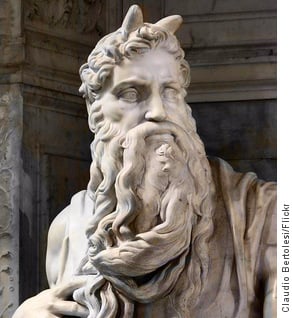

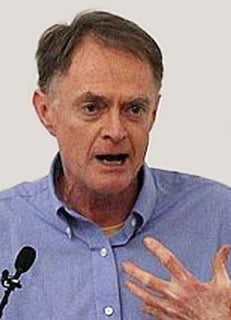
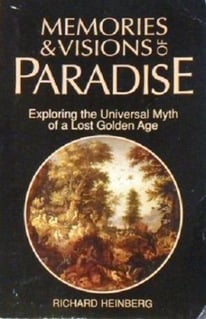
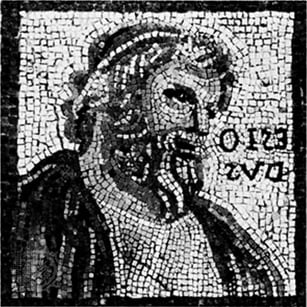
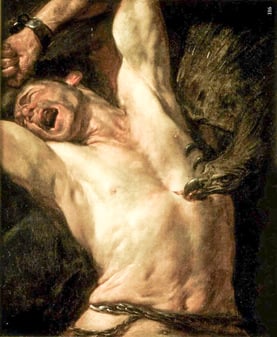
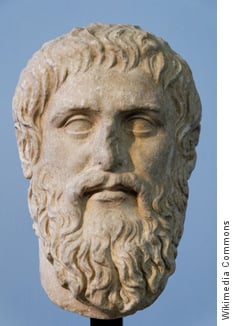
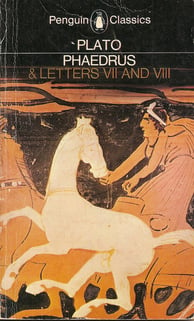
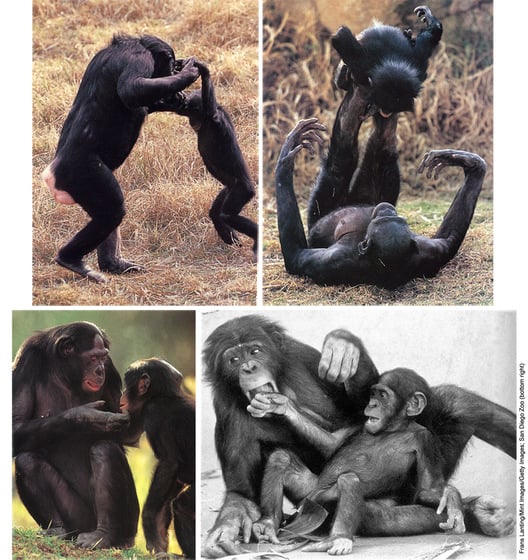
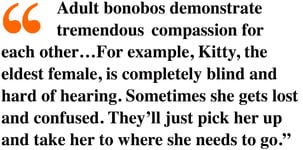
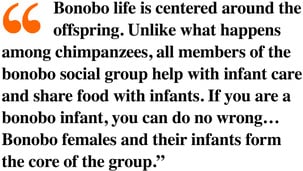
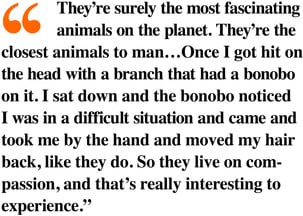
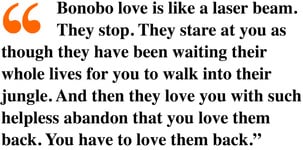
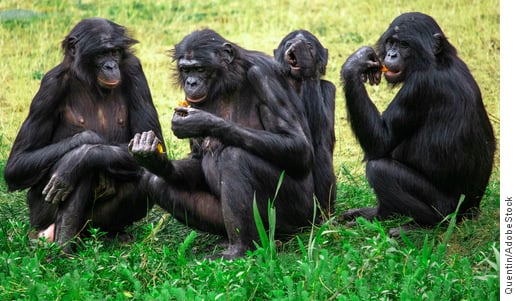




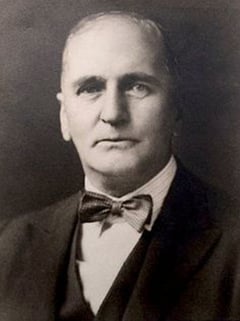
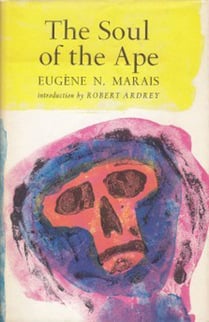
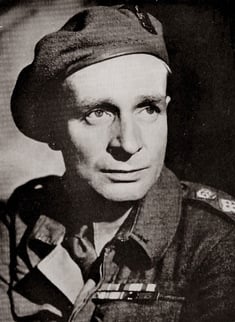
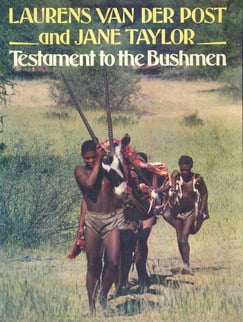
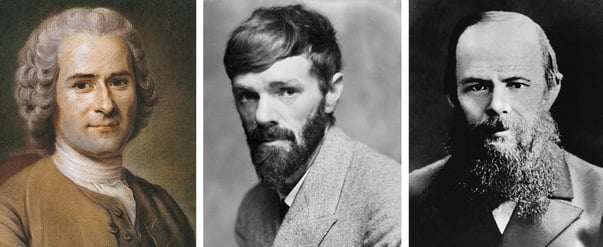
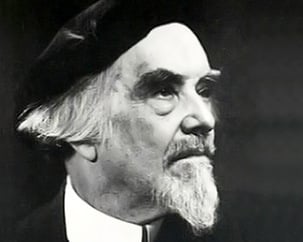
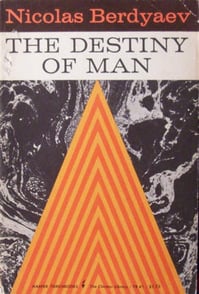
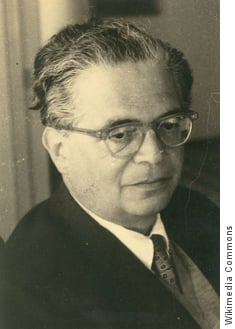
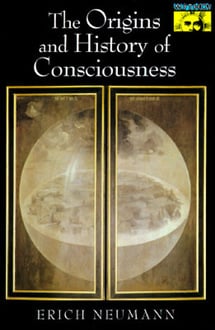
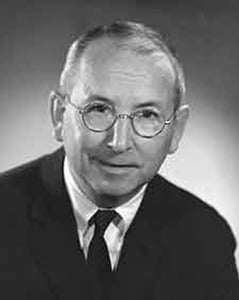
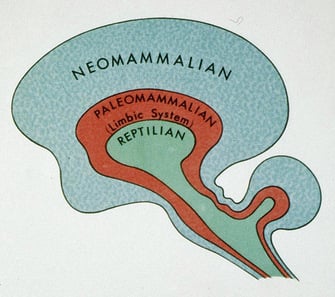
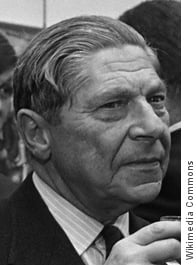
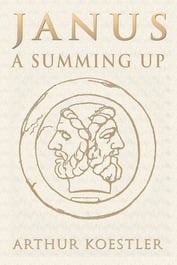

Please wait while the comments load...
Comments